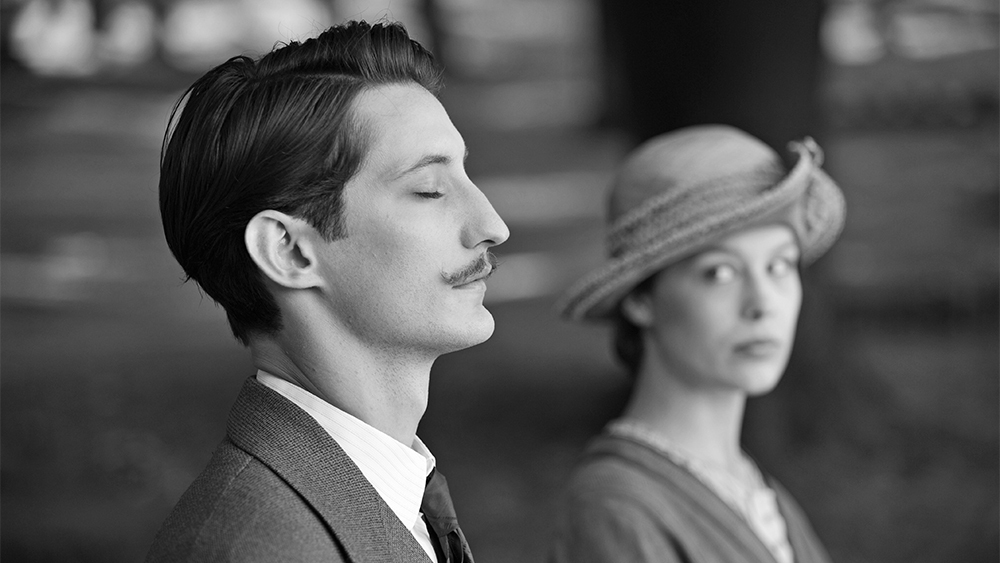A handsome, sensitive young Frenchman visits a small town in Germany after WWI to visit the grave of a young German soldier. He attracts the attention of the dead man’s young widow, and tells her he was her husband’s bosom buddy when they both lived in Paris before the war.
She lives with her dead husband’s parents, and they are gradually won over by the young Frenchman’s evident love for their dead son and his courage in coming to a country still deeply hostile to the French: ‘Every Frenchman is a murderer of my son’, the father initially tells him.
Why is the young Frenchman so passionately troubled about his dead friend? The answer to this central mystery is eventually revealed to us in this romantic meditation on love, death, war, nationalism and forgiveness.
The film is based on a German book written between the wars, and the immediacy of the setting is part of what gives this story strength and appeal. If it had been written by a modern writer looking back over the decades it would have come across as not much more than a costume drama love story.
As told by a contemporary writer however, the war looms large and some grim reminders are offered. The German family wallows in grief over the loss of their beloved boy, but their homes remain intact. When the young widow goes to France she’s forced to confront a harsher reality – these people lost their sons and husbands too, but they’ve also had to endure the material devastation of a war that’s reduced their towns and villages to smoking ruins.
There’s a scene in France where the young German woman is in a small rural hotel and some soldiers come in to the front bar. A man rises to his feet and starts to sing La Marseillaise in their honour; pretty soon everyone’s on their feet and joining in. Very moving. It’s one of the small vignettes that for me made the social and political context as interesting as the love story, if not more so.

